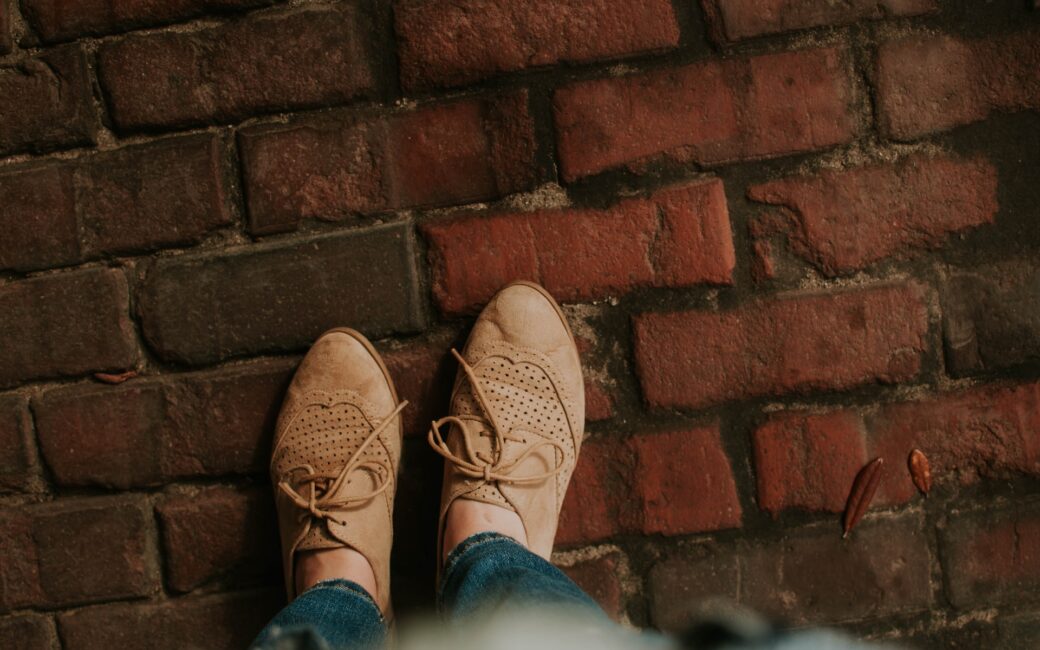The Photo
She thought back to all the wonderful memories she’d had with him. The photo was where she had left it two hours ago, turned face up on the chipped wooden coffee table they’d bought together when they’d first gotten married. She rummaged through the shoebox in which she’d collected snippets of their relationship over the past seven years. Glancing over poems he’d written to her on the backs of receipts, she recalled how they’d once been happy. She picked out a receipt and turned it over, eager to see what kind of things they’d shopped for all those years ago, if perhaps they would give her a hint on why everything had changed. But the ink had faded and all that remained was the logo of the supermarket they still went to. She contemplated going back to live with her mother, six hours away on the island she’d left all those years ago, back before she’d had a child, back when her skin was not the pale white it was now but instead was sun-kissed and salty with the sea she’d race into with her sister after a long day in the fields picking cucumbers and aubergine.
On this island, women didn’t leave their husbands. They endured, waiting for them to mature, for white to invade their crowns and strands of hair to fall out one by one until empty spaces shone at their drawn-back temples, for pot bellies to protrude from the gonyak they drank while their wives picked fresh leaves of molehiya to dry. She knew that her mother would tell her to wait a few more years, until he mellowed, became a ghost of himself, like she’d told her sister all those years ago.
“You’re too sensitive,” her husband had told her before she’d seen anything, when things were just a feeling. In truth, now looking at the photo, she knew she’d not been entirely right, that she’d pestered him about the wrong things, enraged by the scent of tobacco on his lips when she
knew he didn’t smoke and the tinge of alcohol on his breath when she’d never seen him drink. She dropped the receipt into the box, and slid the latter back into the cabinet over the TV, recalling the hole in the wall in her mother’s room, closed off by a makeshift wooden door which was always bolted with a heavy-duty lock. Behind it was hidden the royal-purple tub of sweets relatives brought back from England—chocolates cradled in shiny wrappers, their centres oozing caramel and sticky strawberry and orange creams, everything too soft in the blistering summer heat, everything too sweet and sickening. She’d risk it sometimes, smothering the lock in olive oil, tugging at it until it gave way, and rummaging for the one she liked the most, encased in a wrapper the same colour as the box, its centre hard with a roasted hazelnut. When her mother found the lock, dripping oil, she immediately knew who it was; her sister didn’t touch sweets, despised the tingle they left in her gums she said, and her mother would come running, scolding her, shouting that she’d not find a husband if she continued the way she did. “I don’t want a husband,” she’d say. Just chocolates and the sun, and the mild winters which were somewhat of a respite after the six months of summer that seared at her skin. But she’d fallen for love like all the girls in her village and nothing was as sweet anymore.
She had cried, wanting her husband to see how saddened she was that he’d come home late, his black trench coat shiny with glitter. He raised his hat at their daughter who’d emerged from behind her, eager to greet her father who brought home things with him, girly things like plastic rings with plastic jewels and multi-coloured plaited threads which could be used as bracelets. He’d ignored her, instead hugging his daughter who ran at him, plunging her tiny hands into his pockets, searching for presents. She’d look down at them, at his black whiskers and her daughter’s sparse hair on the top of her crown which she’d tried to fill out with concoctions of olive oil, vinegar and egg yolk as her mother had instructed. His presence dominated the room, filled out the cold
was his home. He had bought everything within it; the blue velvet sofas, the chequered carpet on the floor which she despised. Yet, she was certain he never felt like it was his at all. He walked around the edges of the rooms, touching the walls with the tips of his fingers as if he might fall. She would hug him from behind, her face catching the glitter from his coat, and when he rose, she followed him, walking at the edges herself, all the way to their bedroom. Closing the door behind her, she’d watch as he pulled open the drawers to pick up a pair of clean socks, a clean t-shirt, shorts—all the things he’d change into when he’d washed the glitter off.
She picked up the photo and plunged it into her cardigan’s pocket, gazing out at the street below her window. The lamps had already been turned on. He’d be home any second now. A cat screeched in the distance, a death-scream, like something was after it. There is always something in trouble, she thought to herself, sitting on the edge of the sofa, opposite the front door, listening to any sounds which might be coming from inside her bedroom where her daughter was sleeping. Her suitcase lay open on the bed, packed to the brim with all she owned. She walked past it every day, aware of its presence under the bed, where it had been tucked seven years ago when she’d moved here after her wedding, to this unknown country, its skies always grey and drizzling, the streets smelling of foul fish and ripe meat, a butcher on every corner. The tips of her toes would touch it on Saturdays every other week when she’d change the bedsheets. And when she finally pulled it out earlier that day after she’d discovered the photo, clumps of dust fell off it onto the carpet, and some adhered to its cloth exterior, which she wiped with a damp cloth. Then, she lifted it and put it on the bed, dumping whatever she owned into it. When she didn’t like the mess she saw, she took everything out and folded them one by one, tucking rolled-together socks into her pairs of winter shoes so they wouldn’t get ruined on the journey, while her daughter softly snored on her side.
She sat on the sofa, trying to ignore the photo in her pocket. Someone passed by the door, footsteps pattering, streaks of shadow seeping into the room, and then she heard the shriek of a door opening and then the same shriek of it closing. It was the girl next door, who coughed frequently throughout the day and night, phlegm rattling in her throat.
There were more footsteps and then the metallic clatter of the lock. Her heart beat in her chest, and she wiped her palms across the sofa’s velvet exterior and waited for him to walk in cautiously as he always did, like he was scared of home.
The door opened and he stood there a million miles away, slouching under his backpack filled with the Tupperware of a tuna and sweetcorn sandwich she’d packed for him that morning. He was gazing down, and his right hand was tucked into his coat’s pocket. She rose, eager to tell him what she knew.
“Hi,” she said to him, taking a step forward, feeling the carpet’s soft bristles tickling the sole of her foot. The photo bounced in her pocket.
“Hello,” he said gruffly, swinging around and putting the backpack down by the door. His forehead was slathered with sweat. She thought how he was the pleasantest man she had ever seen. “My mum rang today,” he said, not looking at her. “She wants help with some things in the house. I think she’s going to spring clean.”
What do you mean spring clean? she thought to herself. After what I know. She followed him into the bedroom, her fingertips gliding along the wall. He opened the drawers one by one, picking up socks from one and pants from another. As she stood at the foot of the bed over her open suitcase, he slithered his feet into his slippers.
“I’ll tell her you’ll do it,” he said. He spread out his fingers and patted the top of their daughter’s head, bending down to kiss her forehead. He walked past her, his bundled clean socks brushing against her right arm. She watched as he walked out the room, and a few seconds later
water splashed into the bathtub and her daughter murmured, turning over. She gazed at her possessions in the suitcase, her frayed, murky-white knickers and the beige bra her husband hated. The blush brush she hadn’t used in months still blemished with powder. She took the photo out of her pocket and dropped it into the suitcase, looking down as it settled between her favourite Nike trainers and the case which contained her sunglasses. She’d show her mother, then she’d have to take her in. Her mother would know there was no time to wait for his maturing, that she was in danger, her soul, her life, everything crumbling before her eyes.
A woman’s voice seeped into the bedroom from the street below, spreading the word of the greatness of Jesus. She knew this woman, heard her silvery voice every day, looked out sometimes to see her wearing one shoe, hobbling along. She always wondered why she didn’t take the other shoe off. She had all the choice. We all make our own choices.
She picked up the photo and unfolded it, tearing it into two. She left the side which contained him on the bed next to her daughter and let the other half fall back into the suitcase. She dropped the case’s lid, zipping it up, listening to him humming a tune in the bathroom, the steam wafting into the hallway. She wore her old Nike trainers, their white swooshes a dirty-beige, their laces ragged, and picked up her suitcase, feeling its contents roll to one side, a dead weight.
Ambling along the hallway, she glided her fingertips along the crinkled wallpaper, the steam enveloping her body. She opened the front door and the smoke drifted out with her. She climbed down to the landing, and continued walking even when she heard her husband asking her to bring him a towel.
English translation of Turkish words
- Gonyak: A type of brandy
- Molehiya: The leaves of the Corchorus Olitorius plant. The leaves are picked, dried, then cooked in a tomato sauce with onions, garlic, and either chicken or lamb pieces. It is a part of Cypriot cuisine.
Ayshe Dengtash
Ayshe Dengtash was born in the UK to Cypriot parents. She is a graduate of the University of Birmingham where she completed a PhD in Creative Writing. Her work has been published in Sunspot Literary Journal, Cleaning Up Glitter, Newfound, The Journal, La Piccioletta Barca, Quibble Lit, and Red Noise Collective. Her novel 'The Grieving Mothers of the Departed Children' was published by Alden, Allegory Ridge in 2020. She has previously worked as a prose reader for Black Lawrence Press and the Walled City Journal and currently works as a prose reader for Rowayat. She currently lives in Cyprus with her partner and three cats where she teaches English Literature to students in Hong Kong through online means. She adores the writing of Jhumpa Lahiri, but her favorite book is East of Eden by John Steinbeck. She can watch 'The Graduate' over and over again on a loop.

